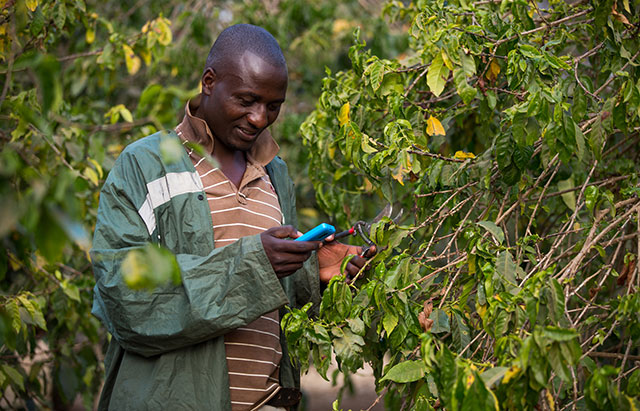Solidaridad Southern Africa has announced plans to adopt Rwanda’s collaborative approach between the government and stakeholders in implementing agricultural policies, particularly digital programs that connect farmers directly to buyers, streamlining services and enhancing efficiency.
The announcement was made during the Africa Food Systems Forum (AFSF) 2024 in Kigali, where Rwanda showcased its successful agricultural practices, including the Agriculture Information and Communication Programme. The Rwandan model caught the attention of participants, including Solidaridad Southern Africa.
Solidaridad Southern Africa is part of the global Solidaridad network, committed to promoting social justice, supporting gender equality, and fostering environmentally sustainable practices across supply chains. The organization is actively working to improve livelihoods in rural communities.
Rwanda’s Digital Agricultural Services as a Model
In 2019, Rwanda’s Ministry of Agriculture and Animal Resources (MINAGRI), in partnership with the Food and Agriculture Organization (FAO-Rwanda), launched digital agricultural services designed to bring critical information closer to rural farmers. These platforms provide farmers with access to weather updates, crop calendars, livestock care tips, market information, e-nutrifood services, and early warning systems for pests like the Fall Armyworm.
Shungu Kanyemba, Managing Director of Solidaridad Southern Africa, highlighted the potential of digital platforms to revolutionize agriculture across Africa, noting Rwanda as an exemplary model. “Rwanda has established an agriculture information steering committee where all farmer-related information is centralized. This is the model we want to replicate as we emphasize the importance of digital solutions in fostering agricultural resilience,” Kanyemba said.
Scaling Up Digital Solutions Across Southern Africa
Solidaridad operates in Malawi, Mozambique, South Africa, Zambia, and Zimbabwe. The organization aims to expand its reach to over 218 million people living in extreme poverty across Sub-Saharan Africa, where the majority depend on agriculture. One of the key initiatives is Solidaridad’s bundled services model, which consolidates agricultural services onto a single platform to boost smallholder farmers’ productivity and resilience.
The bundled service model fosters partnerships between farmers, businesses, and governments, creating a supportive ecosystem that drives progress in African agriculture. Kanyemba emphasized the need to scale this model across more African countries by leveraging the collaborative approach seen in Rwanda. “What we are learning from Rwanda is the collaboration between all stakeholders—this is the key element we’ve been missing to scale up our model,” she noted.
Driving Agricultural Innovation Through Digital Platforms
Solidaridad is focusing on scalable and efficient approaches to strengthen agricultural systems, making them more accessible and affordable for smallholder farmers. Kanyemba stated that it is crucial for Africa to explore how bundled services, such as soil testing, weather data, insurance, and financial products delivered through digital platforms, are transforming access to essential services.
Candice Kroutz-Kabongo, Digital Innovations Lead for Solidaridad, emphasized the role of data-driven digital tools in supporting better monitoring and decision-making in agriculture. “Digital platforms not only streamline access to essential services but also enhance data collection and monitoring capabilities,” she said.
Solidaridad officials expressed optimism that adopting Rwanda’s model could empower more African countries to monitor agricultural progress effectively and inform policy development. By connecting farmers directly to markets and essential services, Solidaridad aims to foster sustainable agricultural growth and improve the livelihoods of millions across the continent.








